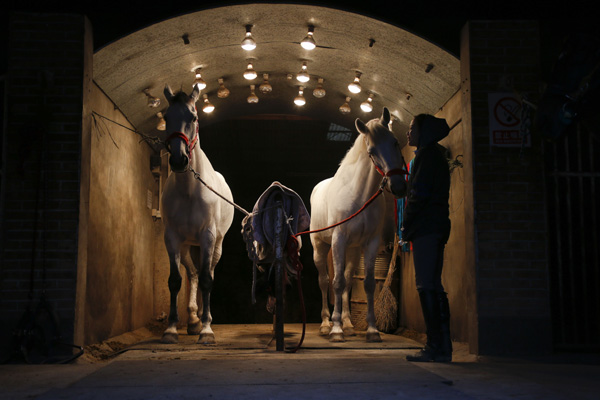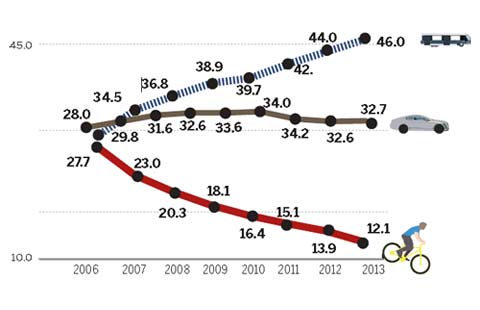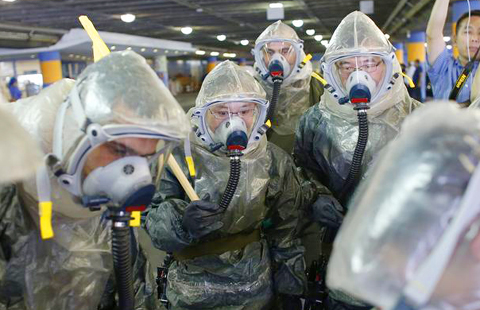Chinese mavericks set to amaze global racing world
Updated: 2014-09-13 07:54
By Mei Ling Young(China Daily)
|
|||||||||||
 |
|
Horses relax their back muscles after a bath at an equestrian club in a Beijing suburb. Horse racing is becoming increasingly popular in China. KUANG LINHUA/CHINA DAILY |
It's hugely popular in many countries, but in China the industry is still in its infancy. Mei Ling Young reports on efforts to develop the 'Sport of Kings'.
A group of well-heeled mavericks from China is poised to take the global racing world by storm. Led by Teo Ah Khing, the Malaysian-Chinese architect who designed the $1.6 billion Meydan Racecourse in Dubai, the China Horse Club shot from obscurity to worldwide fame in June when it won the coveted Epsom Derby with the prize thoroughbred, named Australia.
A combination of audacity, industry and acumen has won the support of key figures in the British racing establishment, including John Warren, bloodstock adviser to Queen Elizabeth II, and Coolmore Stud, Ireland's most successful stud farm.
China has no shortage of equestrian clubs. In 2010, there were an estimated 500 professional clubs, up from only 100 in 2008, according to figures collated by the China (Shanghai) International Horse Fair.
And with the world's highest concentration of billionaires, China doesn't want for financing, either. "What it lacks is know-how," Teo says.
"You can't just buy horses like Australia. You have to develop them, and that is why the breeding cycle is so fascinating-it's an intellectual tease. You can throw as much money and expertise at it as you like, but at the end of the day, it's the horse that has the last word. You can only improve your chances by tweaking the circumstances," Warren says.
Horse racing is an industry whose total economic impact in the UK alone was valued at 3.45 billion pounds ($5.59 billion) in 2013 by the British Horse Racing Authority. Worldwide, the rearing and racing of thoroughbreds has spawned a complex-and lucrative-economy of knowledge and expertise.
But China's underdeveloped infrastructure and regulatory framework have thus far excluded it from meaningful participation and representation on the international racing circuit.
Related Stories
Horses graze at Shandan Horse Ranch in Gansu 2014-08-28 16:13
Top horse fair 2014-08-21 15:14
International Forum on horse culture on to a good start 2014-08-12 17:23
Six endangered horse foals born in Xinjiang 2014-08-05 21:06
The Wild Horse Grassland 2014-07-31 11:06
Fashionable hats at Royal Ascot horse racing festival 2014-06-19 10:33
Today's Top News
Beijing to tighten foreign hiring requirements
Queen urges Scots to think 'carefully'
China' rich astride horse frenzy
China's state-owned corp sells stake
Aussie to sign FTA with China
Anniversary of China's first e-mail marked
Chinese jewelry theft suspect nabbed in Switzerland
ISIS video shows slaying of UK hostage
Hot Topics
Lunar probe , China growth forecasts, Emission rules get tougher, China seen through 'colored lens', International board,
Editor's Picks

|

|

|

|

|

|





